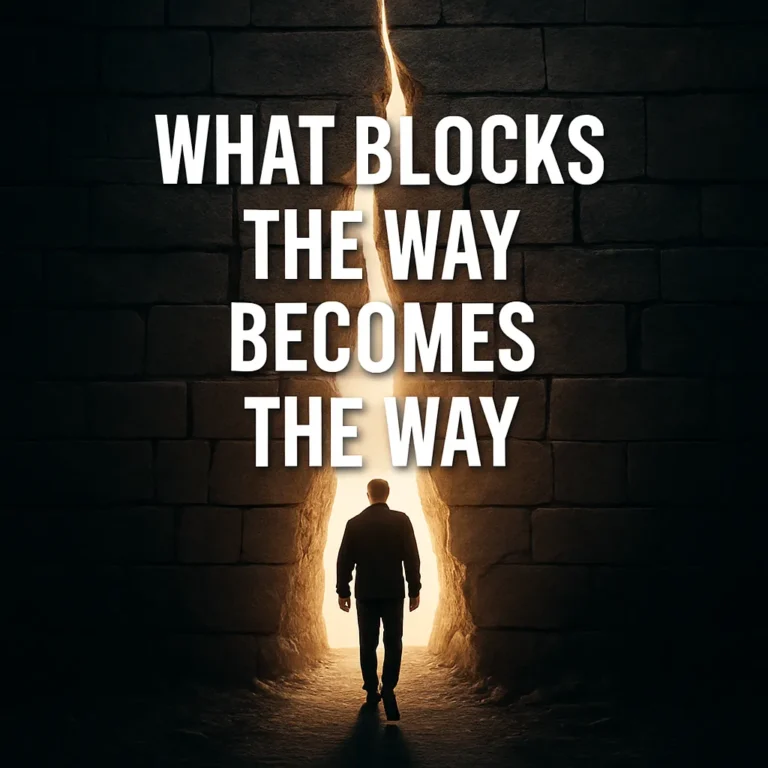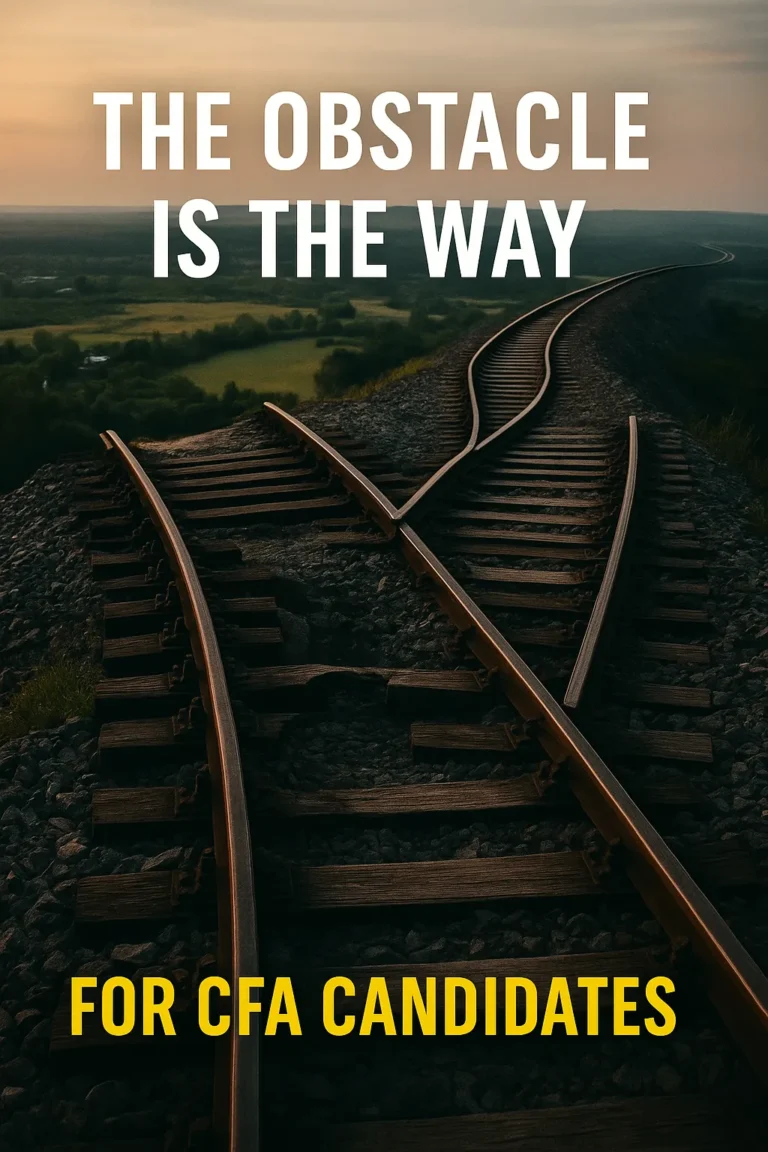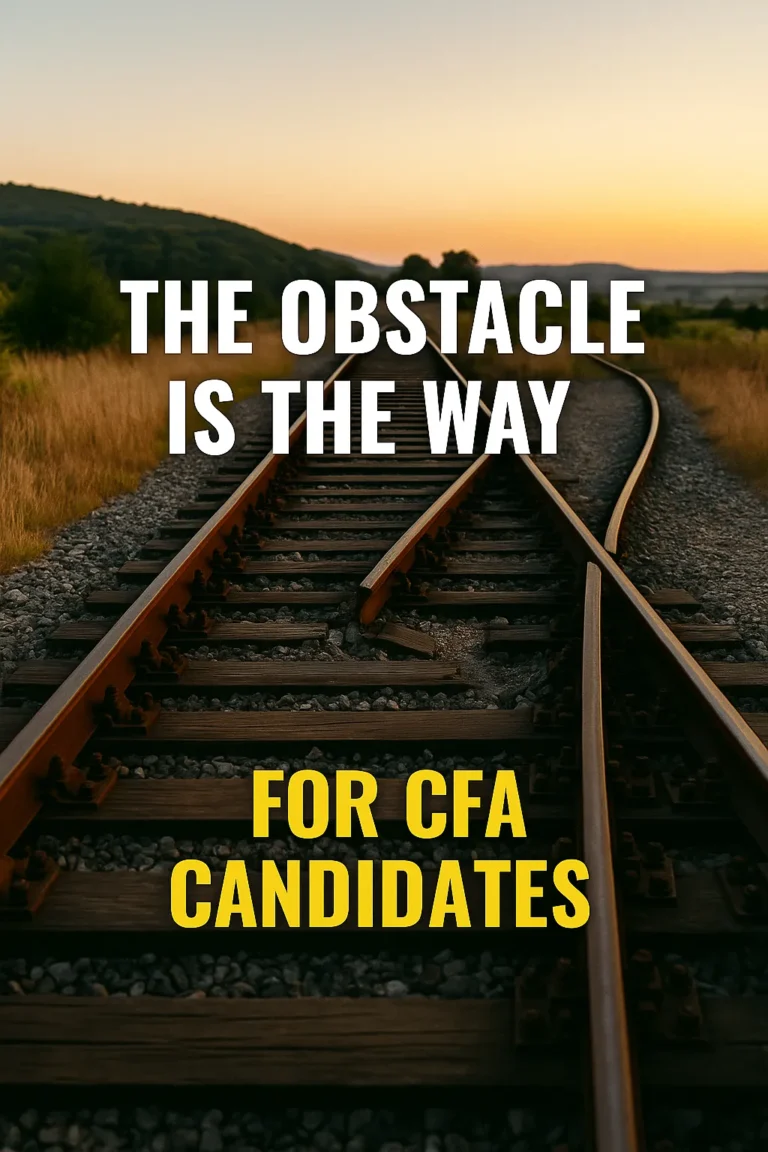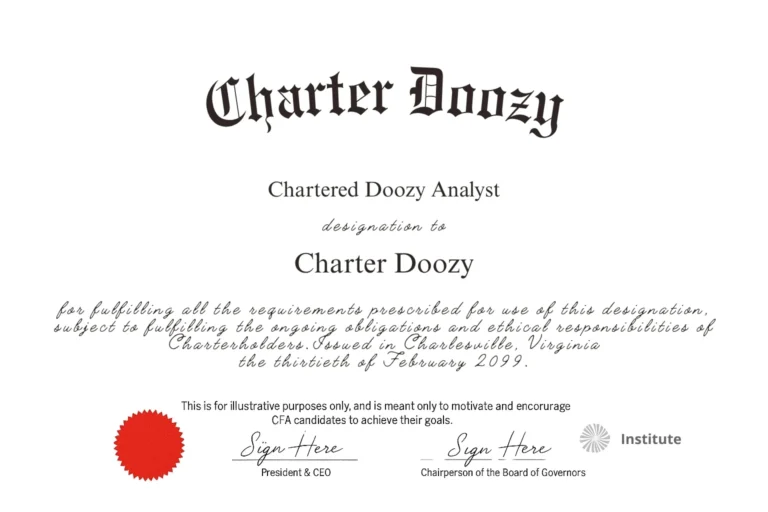You’re not behind. You’re exactly where the challenge needs you to be.
Every CFA candidate, at some point, meets a wall.
For some, it’s failing an exam. For others, it’s burnout, procrastination, or the creeping doubt that whispers, “Maybe I’m not cut out for this.”
It feels like a problem.
But what if it’s not?
What if that very wall — that breakdown, that fatigue, that failure — isn’t in the way of your path?
What if it is the path?
Turning Trials into Tools
In The Obstacle is the Way, Ryan Holiday resurrects ancient Stoic philosophy and makes it bite-sized and battle-ready for the modern world. His core idea is disarmingly simple:
What stands in the way becomes the way.
Instead of trying to avoid, resist, or resent life’s difficulties, you use them. You turn them. And you transform yourself in the process.
This is more than self-help fluff.
This is strategy.

1. Failed Level II? That’s Your Advantage
Let’s say you’ve failed CFA Level II.
You’ve got two options:
Collapse into self-doubt.
Or rebuild from the ashes with more clarity, purpose, and precision than ever before.
Failure strips away illusions. You now know exactly where your weak spots are. That’s leverage. Candidates who pass by a hair don’t have that insight.
You’ve seen your blind spots. That means you can eliminate them.
2. Burnout? Not a bug — a signal
Studying for the CFA while working full-time is brutal. You’re tired. Distracted. Emotionally checked out. You keep putting it off and feel guilty for doing so.
Most people treat this burnout as a reason to quit.
But burnout is your body and mind waving a red flag, saying: “Your system isn’t working. You need a reset.”
The obstacle here isn’t fatigue — it’s the unsustainable method. A better routine, a smarter strategy, a renewed “why” — these grow out of this very discomfort.
Burnout forces you to study smarter. It’s your upgrade opportunity in disguise.
3. Procrastination as a Mirror
You’re scrolling Instagram. Refreshing your inbox. Watching Mark Meldrum videos on 2x speed and calling it “revision.”
Deep down, you know you’re avoiding the real work.
Good.
That awareness is a gift.
Procrastination isn’t just a failure of willpower. It’s often a signal of fear — fear of failure, fear of inadequacy, fear of facing your limits.
So what if you confronted it? Unpacked it? Understood it?
When you trace your resistance to its root, you unlock real growth.
4. The Exam Itself Is the Obstacle
The CFA exam is designed to break you.
It’s not merely testing knowledge. It’s testing endurance, clarity under pressure, and mental resilience.
If you accept this, then every mock exam that breaks you is building you. Every session where your brain feels fried is weightlifting for your mind.
Each challenge is training.
The obstacle is not a threat to your success. It is the training ground for success.
5. From Stoicism to CFA Grit
Marcus Aurelius once wrote:
“The impediment to action advances action. What stands in the way becomes the way.”
He could’ve been talking about Ethics, FRA, or derivatives.
The point is: you don’t succeed despite your obstacles. You succeed because of how you face them.
Not by avoiding them. But by engaging with them, dissecting them, and turning them into power.

Final Thoughts: Embrace the Wall
Every candidate wants shortcuts. Hacks. Easier ways to memorize formulas or beat the exam structure.
But there’s no escaping the hard parts. And that’s good.
The hard parts make you stronger. The struggle sharpens your focus. The fear forces introspection.
When you stop seeing your problems as interruptions and start treating them as instructors, everything changes.
That blank stare at a formula sheet? That’s a lesson in patience.
That failed mock? A blueprint for what to fix.
That voice in your head saying “maybe I’m not good enough”? An invitation to prove otherwise.
The obstacle is the way.
Welcome it. Use it. And keep going.

